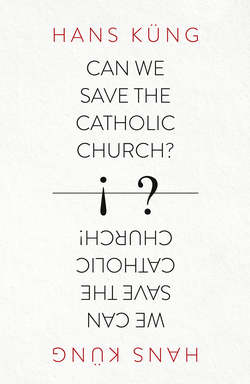Читать книгу Can We Save the Catholic Church? - Hans Kung - Страница 15
The First Fever Attack: Police Investigation of Bishops
ОглавлениеIn Belgium, an independent investigative committee compiled a document of around 200 pages containing reports of at least 475 cases of sexual abuse of children by clergymen and 19 suicide attempts by victims, 13 of which ended tragically. Ever since the Bishop of Bruges, Roger Vangheluwe, had to step down in April 2010 after sexually abusing his own nephew, the number of reports made to the police had increased. As the Belgian judiciary suspected an urgent risk of collusion, they ordered that three police raids be carried out on the same day. The first raid occurred during a meeting of the Belgian Conference of Bishops in Brussels: during the raid, all Belgian bishops, together with the Apostolic Nuncio, were detained for several hours and numerous documents were seized by the police; documents were also seized from the private residence of Cardinal Godfried Danneels, who had been the Primate of Belgium until the end of 2009; and in Leuven, a centre headed by the child psychiatrist Peter Adriaenssen that had been dealing with cases of sexual abuse was also searched. Peter Adriaenssen had spoken of an ‘affaire Dutroux [after the Belgian serial child-abuser Marc Dutroux] within the Belgian Catholic Church’.
These were all unprecedented events in a Catholic country, and they turned up the heat on other bishoprics and, above all, on the Vatican. Subsequently, however, at the urging of the Catholic Church, the Brussels Court of Appeal declared the police operations illegal because the police had acted out of all proportion. However, there can be no question that the investigations exposed rotten areas in the Church: the sexual abuse itself, and the cover-ups initiated by the bishops.
At least Cardinal Danneels immediately apologized in several interviews (as reported by the Associated Press on 30 August 2010 and Reuters News Agency on 8 September 2010) for his ‘errors of judgement’ in not urging the incriminated bishop to step down immediately and in attempting to dissuade the victim, who was the bishop’s own nephew, from immediately making public his charges against his uncle after having kept silent about them for so many years. At the same time, however, Bishop Guy Harpigny, who was given the responsibility of reviewing and dealing with cases of abuse, declared that Archbishop André-Joseph Léonard, the head of the Bishops’ Conference, had refrained from issuing a clear statement of apology because the Church feared potential financial claims by victims for compensation.
In any case, it was clear that, even in Catholic countries, the days when the Catholic Church could demand separate jurisdiction and enforce its own laws contrary to those of the state had come to an end.
